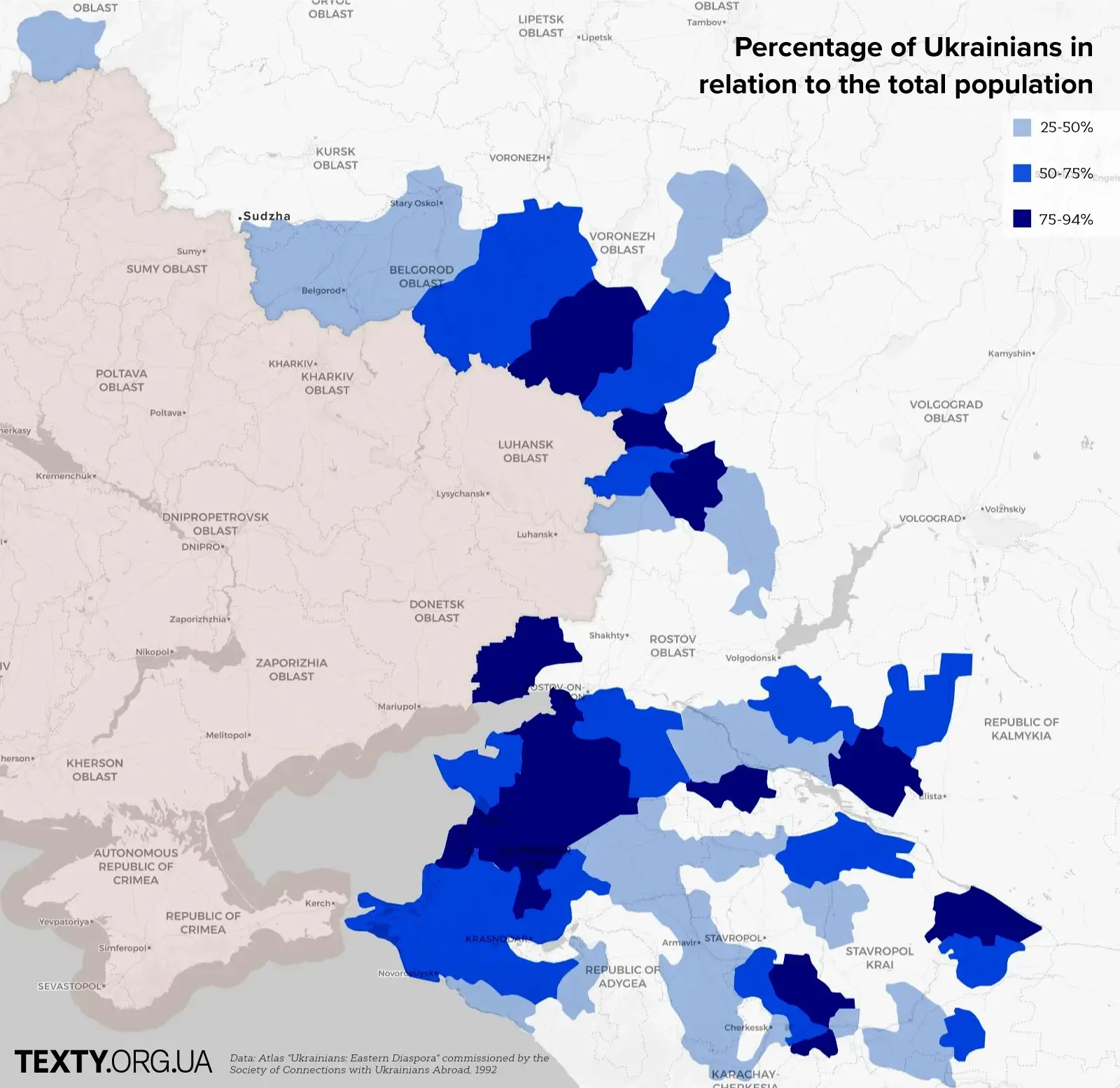Ethnic Ukrainians in the territories bordering Russia (MAP)
There are many maps showing where ethnic Ukrainians live in Russia. We decided to take data from the general population census of the USSR in 1926. The census is structured data. And even though this data is almost a hundred years old, it is the most recent systematized and truthful information about Ukrainians on the other side of the Russian border.
Let us emphasize once again: the data is a hundred years old. Therefore, people of Ukrainian ethnic origin who live in the designated territories today most often consider themselves Russians. Whether there are exceptions and how widespread they are needs to be investigated separately, but it is obvious that this is impossible under the current Russian regime.
The census above showed the percentage of Ukrainians in the counties of the time. We have shown the territories where the number of Ukrainians was more than 25% of the total population of the county. This means that there could have been completely Ukrainian villages in other areas, but in terms of percentage, there were very few Ukrainians in a particular area, and they are not marked on the map.

"This census is probably the only one among the Soviet censuses (and one in 1897) when the Russian authorities did not interfere with the manifestations of Ukrainian cultural identity. It was an era of indigenization, including Ukrainization. The policy of Ukrainization was implemented not only in the Ukrainian SSR but throughout the whole Union. "Until December 1932, in the regions of Russia adjacent to Ukraine, the Ukrainian language was officially used in the fields of education, culture, the press, and office work," explains historian Maksym Mayorov.
All subsequent population censuses took place under conditions of Russification. Physically, the Ukrainians of the Northern Sloboda Ukraine, Donbas, and Kuban did not disappear, but their ethnic identity was suppressed and blurred. The Ukrainian language remains a surviving artifact in some places.
But there is even less national Ukrainian consciousness and solidarity with Ukraine than there is Ukrainian language. In the borderlands, you can meet people who identify themselves as "khokhly", the Ukrainian language is called "balachka", and Ukrainian folklore is considered purely regional, for example, "Kuban".
Interestingly, when you watch videos from Russian territories, the Russian language in those places where many ethnic Ukrainians have historically lived is very similar to the Russian language of eastern and southern Ukraine. That is the Russian language of Russified Ukrainians. It differs in softness and intonation from the Russian language from other parts of Russia.

